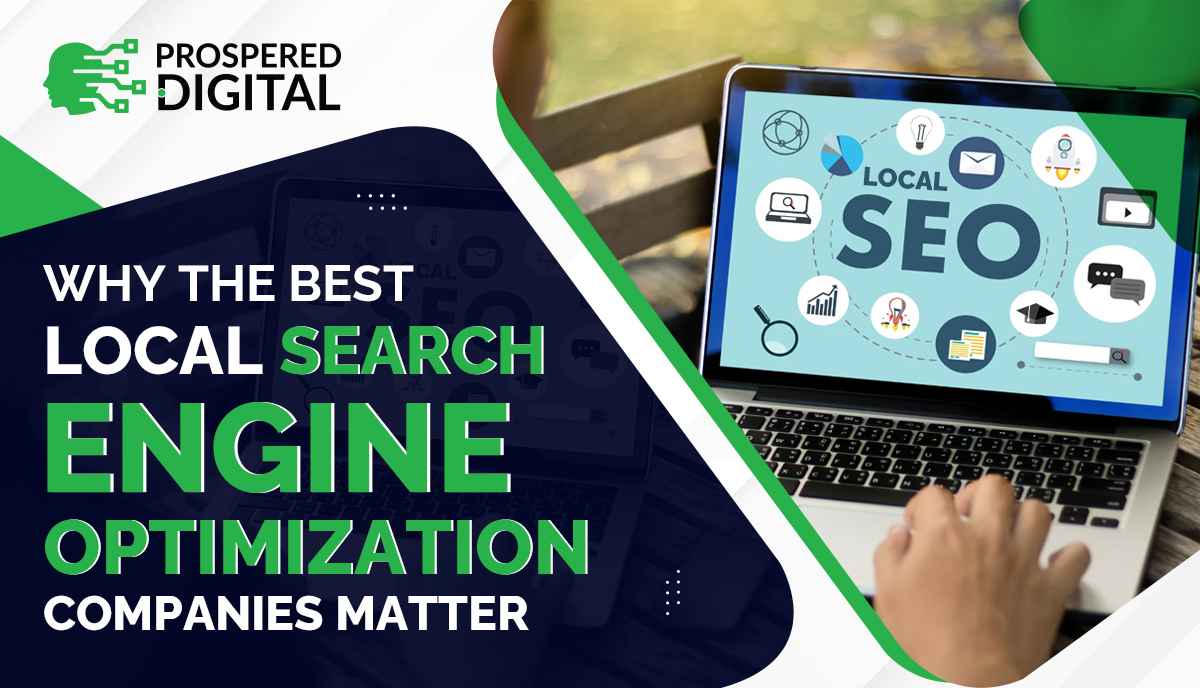The term SEO is dead has been in use for over ten years ago but every year, search engine optimization proves this wrong as it is not only alive but growing at a faster rate than most digital spheres. In the era of AI, automation, and constantly evolving algorithms, the question many professionals are asking is: What is Holistic SEO? What is the future of the SEO career? Does it remain a stable profession, or are the critics finally correct?
Let’s get down with Prospered.Digital into the truth behind the myths and examine what is actually happening in the SEO job market, backed by statistics, trends, and real-world experience.
Global SEO Job Market Statistics
In case SEO is really dead, the numbers would not be this high:
The BrightEdge statistics show that organic search contributes to 53 percent of total traffic to websites, and therefore, SEO is one of the most useful digital marketing skills.
According to Statista, the global SEO market is estimated to be 68 billion dollars in 2022 and is expected to reach above $129 billion in 2030.
Tens of thousands of jobs related to SEO appear in job boards such as LinkedIn and Indeed every day, including entry-level analysts and senior SEO managers.
The Truth: SEO jobs are not decreasing, but increasing. Businesses are aware that without a Google presence, they lose customers to their competitors. Such a need continues to drive the development of SEO jobs across the globe.
SEO Job Growth and Career Outlook
Rather than dying, the SEO career outlook is robust and growing. Here’s why:
The U.S. Bureau of Labour Statistics categorizes SEO as a marketing speciality and estimates that this decade will see a 10 percent or higher employment growth rate, more than twice the pace of the average.
The average pay of SEO professionals is between $55,000 and $75,000 every year, and top-level strategists and managers in most markets worldwide will be earning in the 100,000+ range.
Some industries, such as e-commerce, SaaS systems, and local businesses, entirely depend on organic traffic. The need to hire SEO grows along with these industries.
Dying with SEO is, that is, it is changing to higher-value functions.
The Myths V/S The Reality
Rumours abound regardless of the data. Breaking some of the most popular myths about an SEO job:
Myth 1: AI will replace SEO jobs.
Reality: The repetitive work (such as keyword suggestions) is to be done by AI; strategy, creative direction, and problem-solving are in the domain of humans. Businesses still require professional staff who can analyze data and match SEO with business objectives.
Myth 2: SEO is being killed by social media.
Reality: Although social media is strong, 68 percent of online activities commence with a search engine (BrightEdge). SEO is not a substitute for social- they complement each other.
Myth 3: It is no longer possible to find a career in SEO.
Reality: The opportunities in the SEO career are more than ever. SEO specialists are now permitted to specialise in technical SEO, content strategy, local SEO, or eCommerce SEO – sectors that did not exist in this magnitude 10 years ago.
SEO Jobs & Skills in Demand
The contemporary SEO business is not dominated by the so-called SEO generalists. Here are the hottest ones in 2025:
- Technical SEO Experts – gurus of crawling, indexing, Core Web Vitals, and site performance.
- Content SEO Strategists – a combination of content storytelling and keyword research.
- SEO Analysts – masters of competitor intelligence, data visualization and ROI management.
- Local SEO Experts – assist small and medium enterprises in conquering the local search results.
- E-commerce SEO Specialists – optimizing product pages, filters and categories to convert.
Top SEO job skills include:
- Google Analytics / Search Console expertise.
- AI-based search optimization & search keywords.
- Link-building and digital PR
- UX-driven SEO strategies
- Flexibility to algorithm modification.
Trendy notions employers no longer seek keyword stuffers, but strategists with data, marketing and user behaviour knowledge.
SEO Job Challenges
There are no obstacles to SEO like any profession. Some challenges include:
- Algorithm volatility – Google performs approximately 3,000-4,000 changes each year, which makes experts remain on the alert.
- Competition – SEO is a congested area; to be noticed, you must be creative and skilled.
- Automation threat – ChatGPT, SurferSEO, SEMrush, and others are automating manual labour, yet experts need to continuously upskill to remain valuable.
These SEO employment issues do not ruin careers, but they divide high-value experts and obsolete professionals.
How much does SEO Job Pay? Earning Potential.
In SEO, compensation depends on experience, geography and area of specialization. Here’s a global snapshot in 2025:
- Entry-level SEO jobs: $40,000–$55,000 per year
- Mid-level specialists: $55,000–$75,000
- Top strategists/managers: $85,000 to 120,000 and above.
- Director-level roles: $120,000–$150,000+
It is common to see freelancers and consultants charge between $25 and $100 per hour, and experienced consultants may make much more.
The salaries of SEO are competitive among other digital marketing positions, particularly when combined with expertise in content marketing, PPC, and analytics.
Future of SEO Jobs
So, is SEO dying? Absolutely not. This is what is really going on:
SEO automation will remove the repetition, and it creates opportunities in the strategic SEO positions.
New career paths are emerging with voice search and video search, and AI-driven strategies.
User-centric SEO has become more common in business because businesses are no longer concentrating on ranking, but rather, focusing on skilled professionals.
The future of SEO employment is not only safe but also growing for those who are willing to change and reskill.
5 Fast Facts About SEO Jobs in 2025
- Organic search contributes over 53 percent of the entire web traffic – SEO is the workhorse of digital presence.
- The global SEO market is going to reach $129 billion in 2030.
- SEO experts receive between $55,000 and $75,000 each year, with senior positions going beyond $100,000.
- There is an estimated job growth of 10 percent or above in the field of digital marketing (including SEO) within this decade.
- The new positions, such as E-commerce SEO and AI-based SEO strategists, are defining the future of the industry.
Key advice for you: SEO is not gone, it is changing. It is really the professionals who adjust, upgrade, and learn new technologies, and they are the true winners.





